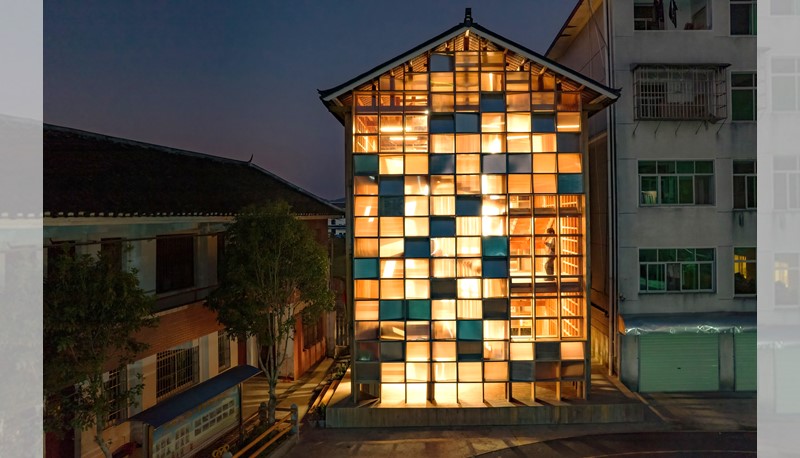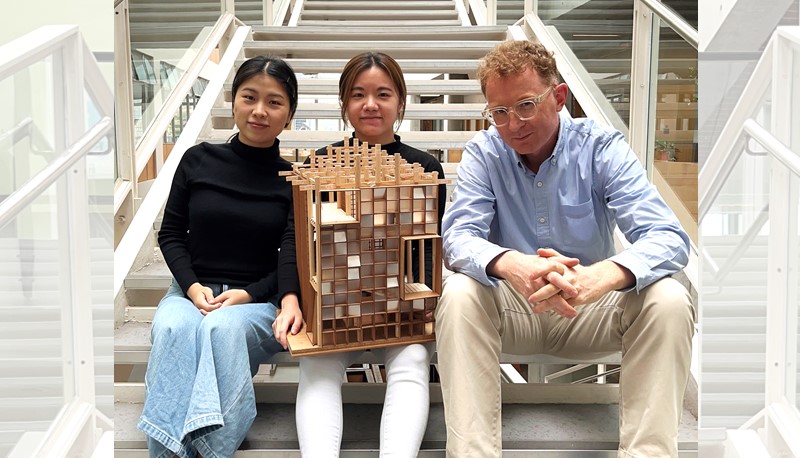
Blending heritage and innovation in a rural children’s library

The Pingtan Book House demonstrates how architecture can unite and revitalise rural communities.
The CUHK School of Architecture has just opened an extraordinary new children’s library. The Pingtan Book House, located in Hunan Province in mainland China, has been carefully designed to mix play and reading within a traditional timber structure, inspiring a love of both books and Dong culture in local youngsters.
The project is built on the belief that architecture can unite and revitalise rural communities. For years, Dong villages have seen their architectural heritage rapidly evaporate due to modernisation and the adoption of contemporary lifestyles. The Pingtan Primary School, where the Book House is located, is a prime example. Built 20 years ago, the school is entirely made of concrete, a material foreign to Dong culture, and equipped with only a modest library, despite accommodating more than 300 children from nearby Dong villages.
A slice of living heritage
The research team saw the opportunity to build a new library based on a timber structure that retains traditional Dong vernacular architectural language, in hope of reawakening a sense of wonder in the Dong culture among schoolchildren and adults alike. Serving as a form of living heritage, the Pingtan Book House encourages local children to explore a space that recalls their rich traditions and to appreciate their culture by engaging with it up-close on a day-to-day basis.
Covering 180 square metres, the three-storey library adopts the traditional style of a Dong ‘Ganlan’ timber frame house, through which elements such as stairs, walls, windows and floors were reinterpreted. The building consists of two intertwined spiral staircases, with walls dedicated to bookshelves and framed views of the landscape. With the exception of the façade panels, the entire Book House was built using timber, and features traditional Dong carpentry details.
Prof. Peter W. Ferretto of the School of Architecture, who has long been dedicated to research into rural village regeneration, said, ‘This is no ordinary children’s library. The Pingtan Book House is a place where kids read and play at the same time: a new paradigm for rural village libraries in China.’

Prof. Peter W. Ferretto (right) and his team at the Condition_Lab are dedicated to research on rural village regeneration.
Designing for impact
This project demonstrates how design can make a difference in a rural community while helping it reconnect with its history and culture: compelling evidence of the social significance of architecture. It also reminds us that the value of design excellence is not limited to high-end, large-scale projects, and that achieving meaningful social impact does not require large amounts of financial investment.
Pingtan Book House was designed and built between 2019 to 2021 by Prof. Ferretto and his team at the Condition_Lab, together with Prof. Cai Ling of Guangzhou University and local carpenters from Pingtan. The research team also completed an award-winning sister project, Gaobu Book House, in another Dong village three years ago.
Read more: